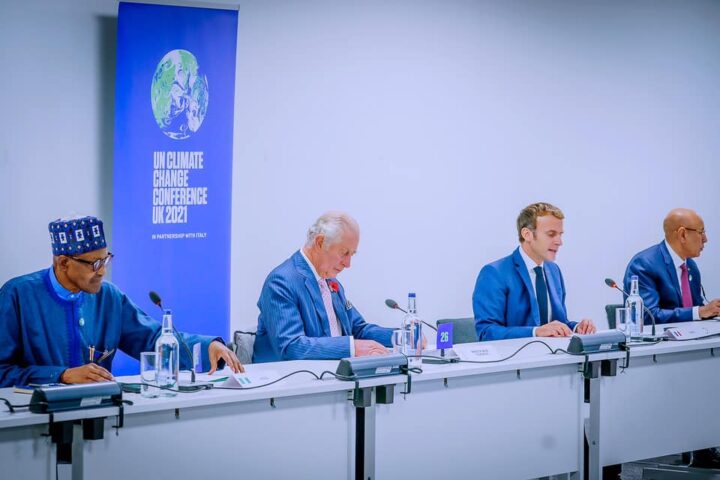Despite directly impacting our communities, health and livelihood, climate-related reports usually take a back seat to dominant news beats like politics and business. Climate Watch aims to ensure you never miss important stories on climate change and actions being taken towards limiting its impact.
Here is a round-up of last week’s climate stories:
The COP26 climate conference officially ended on November 13 but with disappointments by countries on the failure of the COP to phase out coals. At the closing plenary almost 200 countries adopted the new Glasgow climate pact but were agitated over the last-minute compromise on coal. They said they were displeased by the change of phrase to “phase down” rather than “phase out” coal power — the single biggest source of greenhouse gas emissions. Find out more here. You can also read a scorecard report by TheCable on if COP26 achieved its goals.
Meanwhile, COP26 resulted in the completion of the Paris Agreement rulebook after six years of deliberations. The Paris rulebook, which is the guidelines for how the Paris agreement is delivered will help keep the Paris targets alive, creating a chance of limiting global warming to 1.5 degrees Celsius. The rulebook will also ensure countries are held accountable to deliver on their targets.
Advertisement
After the conference, Boris Johnson, UK prime minister, said though COP26 might not have succeeded in stopping climate change but it has helped in slowing down the rate of it. He said COP26 has equipped nations with the tools needed to turn global warming around and that the goal of restricting the growth in temperature to 1.5C is still alive. Read more here.
Also at the just concluded COP26, over 20 countries and a group of leading car manufacturers committed to ending the era of fossil-fuel powered vehicles by 2040 or earlier than that. Ford, Mercedes and Volvo are among the carmakers to sign the agreement while some of the countries which agreed to phase out new petrol and diesel car sales by 2030 include: Canada, New Zealand, the Netherlands, Ireland and the UK.
With COP26 ended, plans are already underway to turn around temperature increase and slow down climate change. To do this, a UN-led Cool Coalition has announced a series of steps to reduce the climate impact of the cooling industry, including a 12 million pounds boost from the UK government. Inger Andersen, executive-director of UN Environmental Programme (UNDP), said cooling as a means of preventing heat extremes has become a major driver of climate change. She mentioned that around 10 percent of the world’s electricity is used for air conditioning and if left unchecked, emissions related to cooling are expected to double by 2030. She however suggested that more energy efficient cooling solutions need to be adopted.
Advertisement






